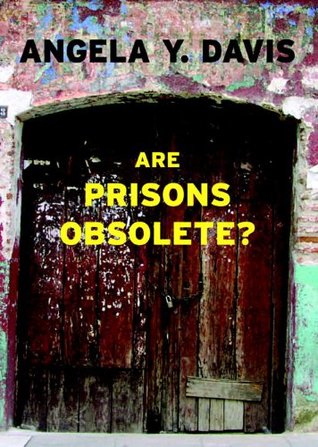More on this book
Community
Kindle Notes & Highlights
The prison therefore functions ideologically as an abstract site into which undesirables are deposited, relieving us of the responsibility of thinking about the real issues afflicting those communities from which prisoners are drawn in such disproportionate numbers.
How can we move to decriminalize drug use and the trade in sexual services? How can we take seriously strategies of restorative rather than exclusively punitive justice?
Whereas philosophers perceived a ceaseless state of war between chattel slaves and their masters, criminologists hoped to negotiate a peace treaty of sorts within the prison walls.
Both isolated their subjects from the general population by confining them to a fixed habitat. And both frequently coerced their subjects to work, often for longer hours and for less compensation than free laborers.
Thomas Jefferson, who supported the sentencing of convicted people to hard labor on road and water projects, also pointed out that he would exclude slaves from this sort of punishment. Since slaves already performed hard labor, sentencing them to penal labor would not mark a difference in their condition. Jefferson suggested banishment to other countries instead.18
Here we have a penal system that was racist in many respects—discriminatory arrests and sentences, conditions of work, modes of punishment—together with the racist erasure of the significant contributions made by black convicts as a result of racist coercion.
When children attend schools that place a greater value on discipline and security than on knowledge and intellectual development, they are attending prep schools for prison.
Although the branking of women was often linked to a public parade, this contraption was sometimes hooked to a wall of the house, where the punished woman remained until her husband decided to release her.
We should therefore question whether a system that was intimately related to a particular set of historical circumstances that prevailed during the eighteenth and nineteenth centuries can lay absolute claim on the twenty-first century.
“what’s the use of building your body if you can’t build your mind?” Ironically, not long after educational programs were disestablished, weights and bodybuilding equipment were also removed from most U.S. prisons.
deviant men have been constructed as criminal, while deviant women have been constructed as insane.
the state itself is directly implicated in this routinization of sexual abuse, both in permitting such conditions that render women vulnerable to explicit sexual coercion carried out by guards and other prison staff and by incorporating into routine policy such practices as the strip search and body cavity search.
Prisoners do data entry for Chevron, make telephone reservations for TWA, raise hogs, shovel manure, and make circuit boards, limousines, waterbeds, and lingerie for Victoria’s Secret, all at a fraction of the cost of ‘free labor.’”
In 1966, he recalled in a newspaper interview: “All I saw before me were acres of skin. It was like a farmer seeing a fertile field for the first time.”
From 1990 to 1998, homicide rates dropped by half nationwide, but homicide stories on the three major networks rose almost fourfold.
The prison industrial complex is fueled by privatization patterns that, it will be recalled, have also drastically transformed health care, education, and other areas of our lives.
What, then, would it mean to imagine a system in which punishment is not allowed to become the source of corporate profit?
Or one in which punishment itself is no longer the central concern in the making of justice?


